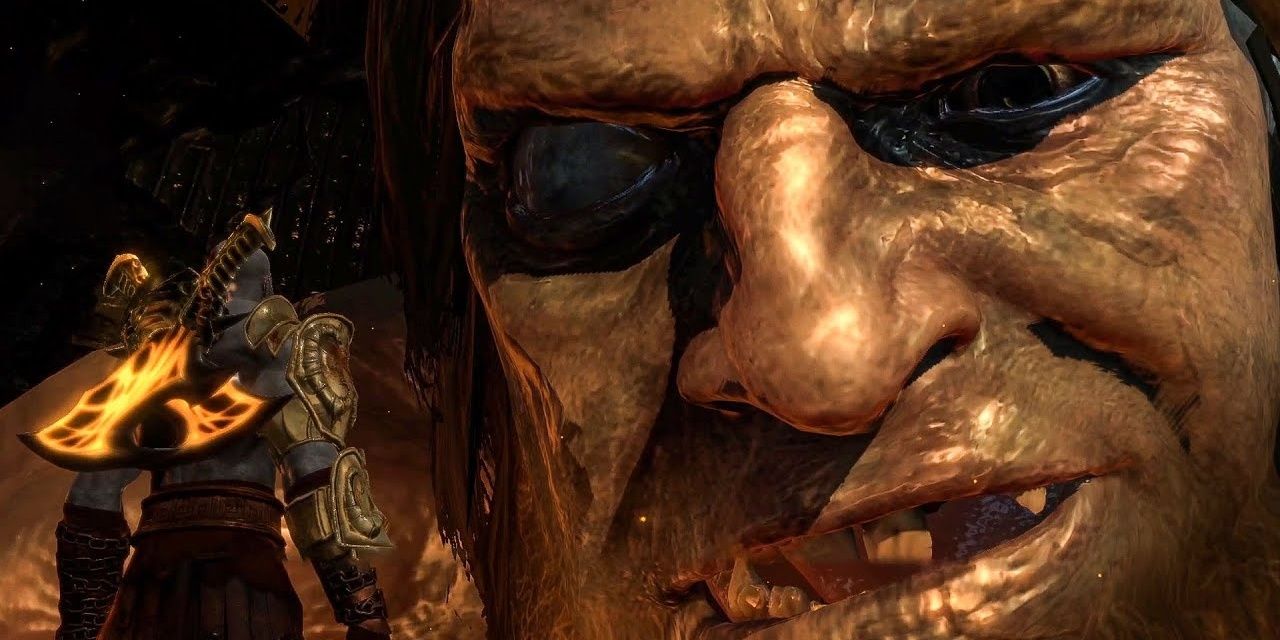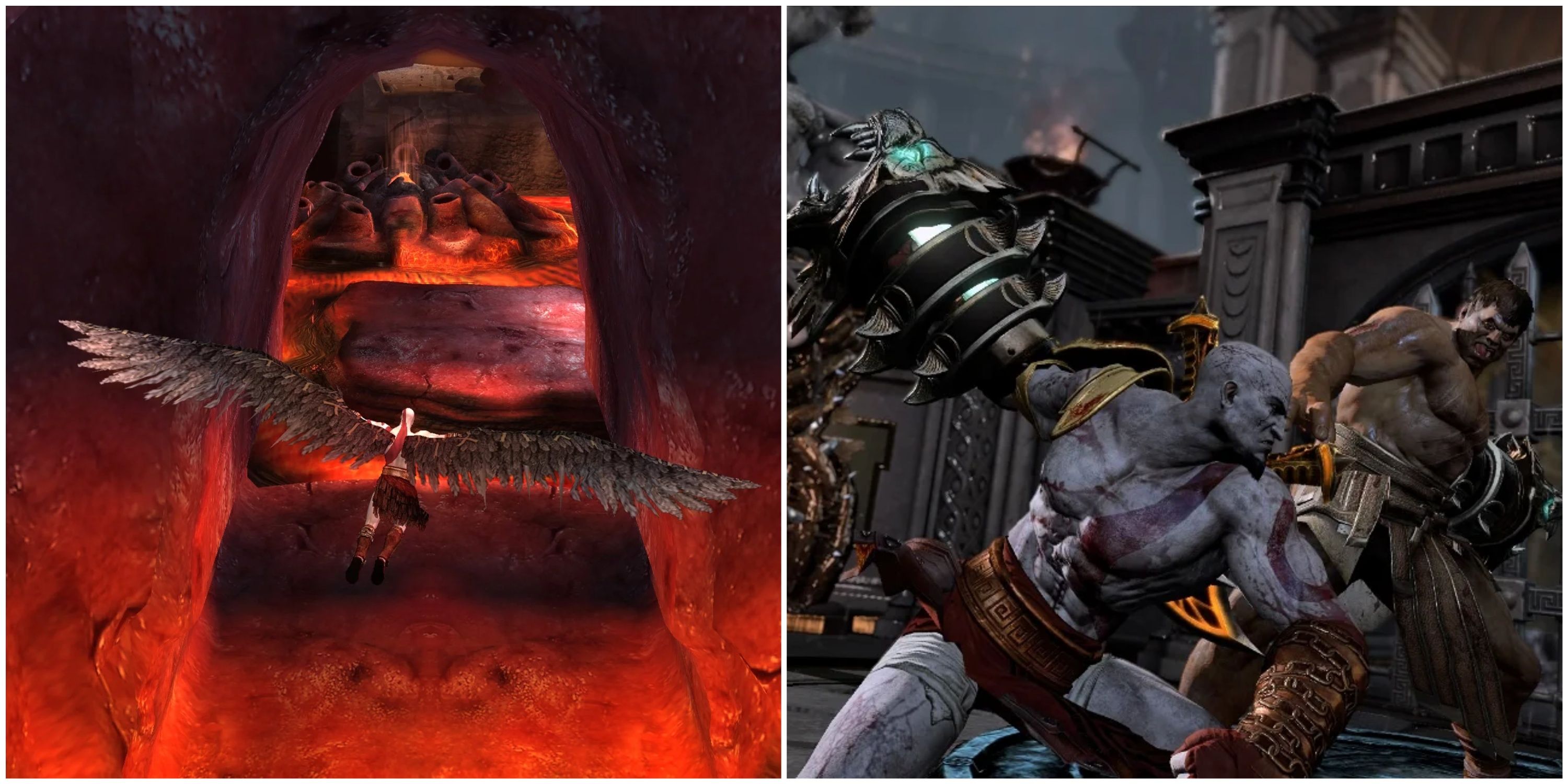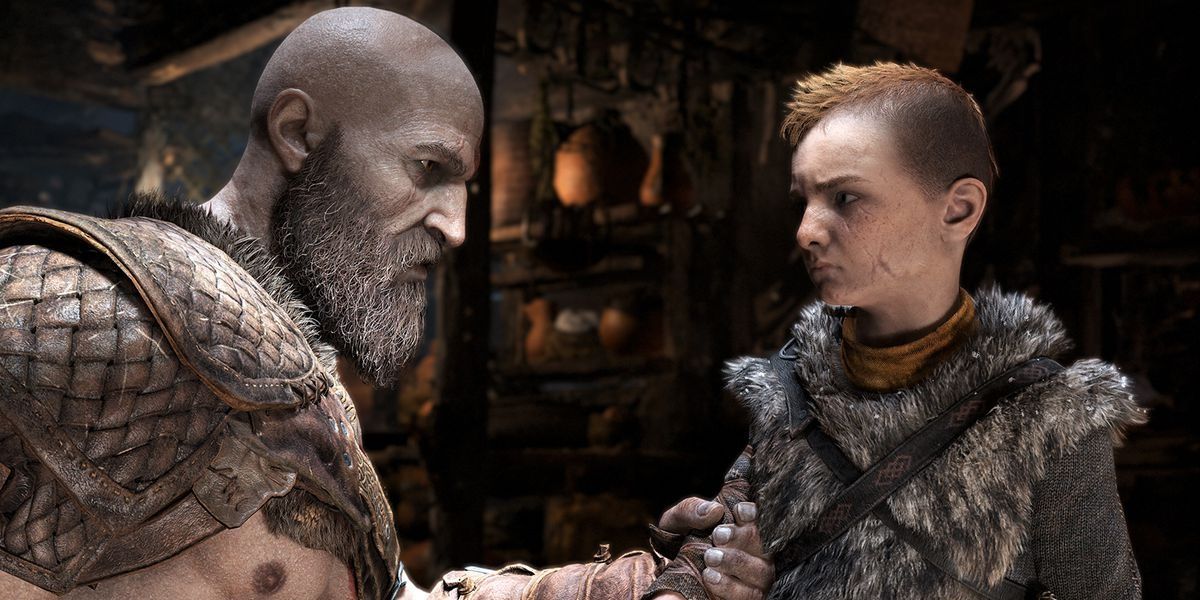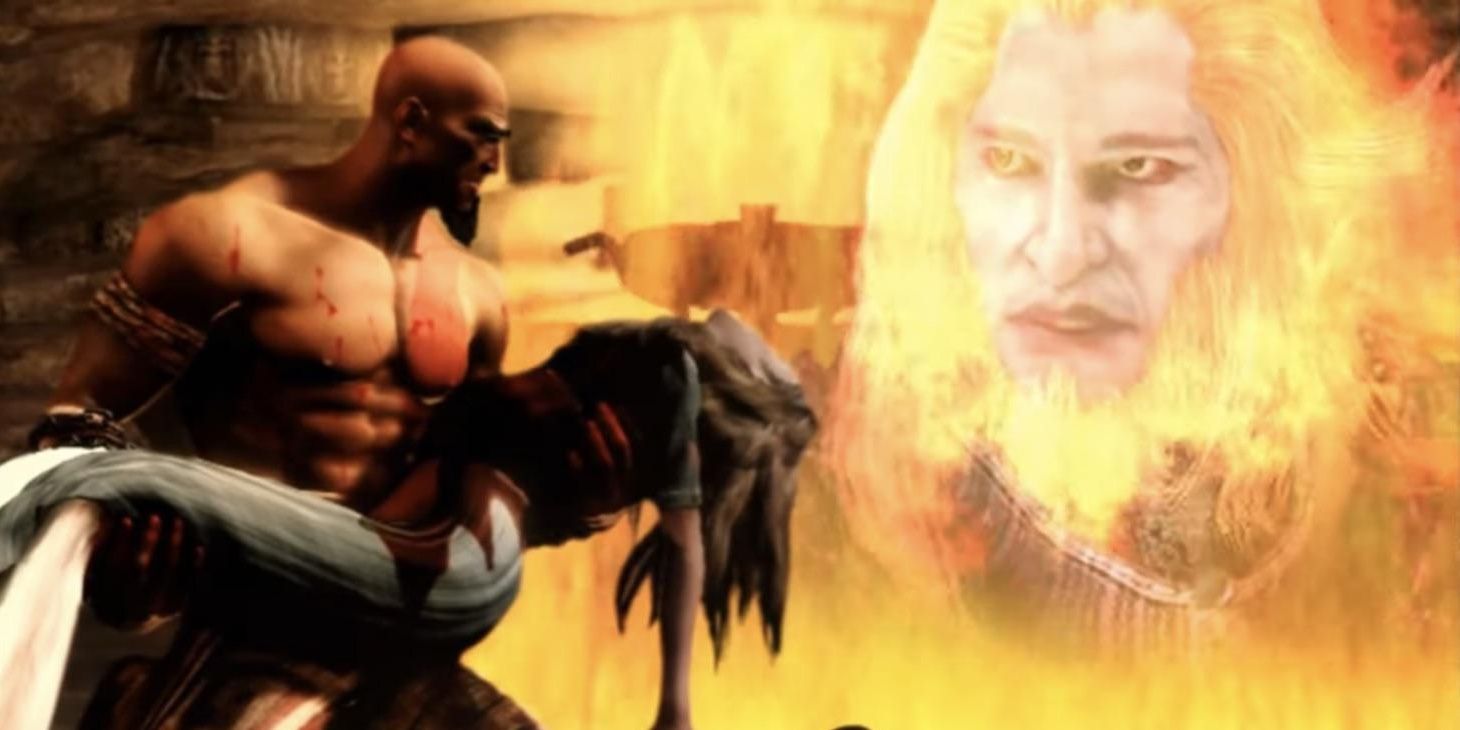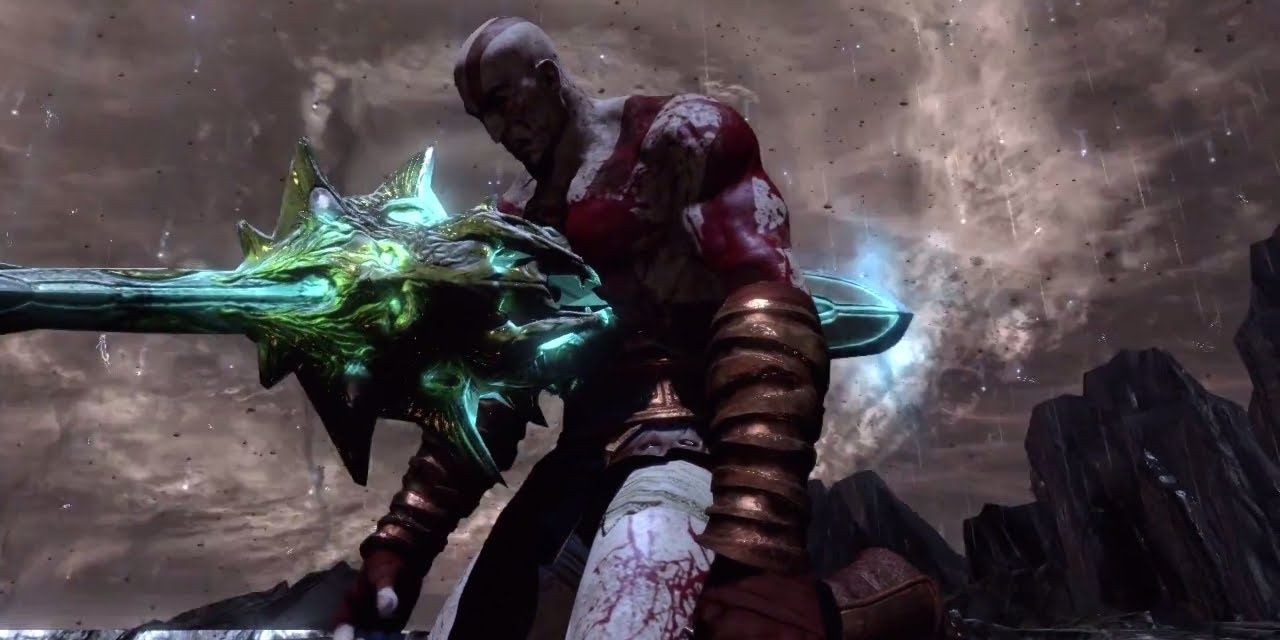Highlights
- Trusting Hephaestus saved Kratos from a fiery end, showing his smarts in picking the right allies.
- Kratos doesn’t waste items from foes, using their tools for his advantage, demonstrating practicality in combat.
- Kratos teaches Atreus self-control, signaling his own growth and desire to adopt better values for personal improvement.
The main character of the God of War franchise, Kratos, has a reputation as a brainless brute. He definitely gets into enough fights, and the Ghost of Sparta prefers a simple and direct approach to every scenario. Whenever someone gets in his way, he lets his weapons do the talking, with some truly savage results. That said, as the series progresses, it becomes apparent that his apparent lack of intelligence may not be what it seems.
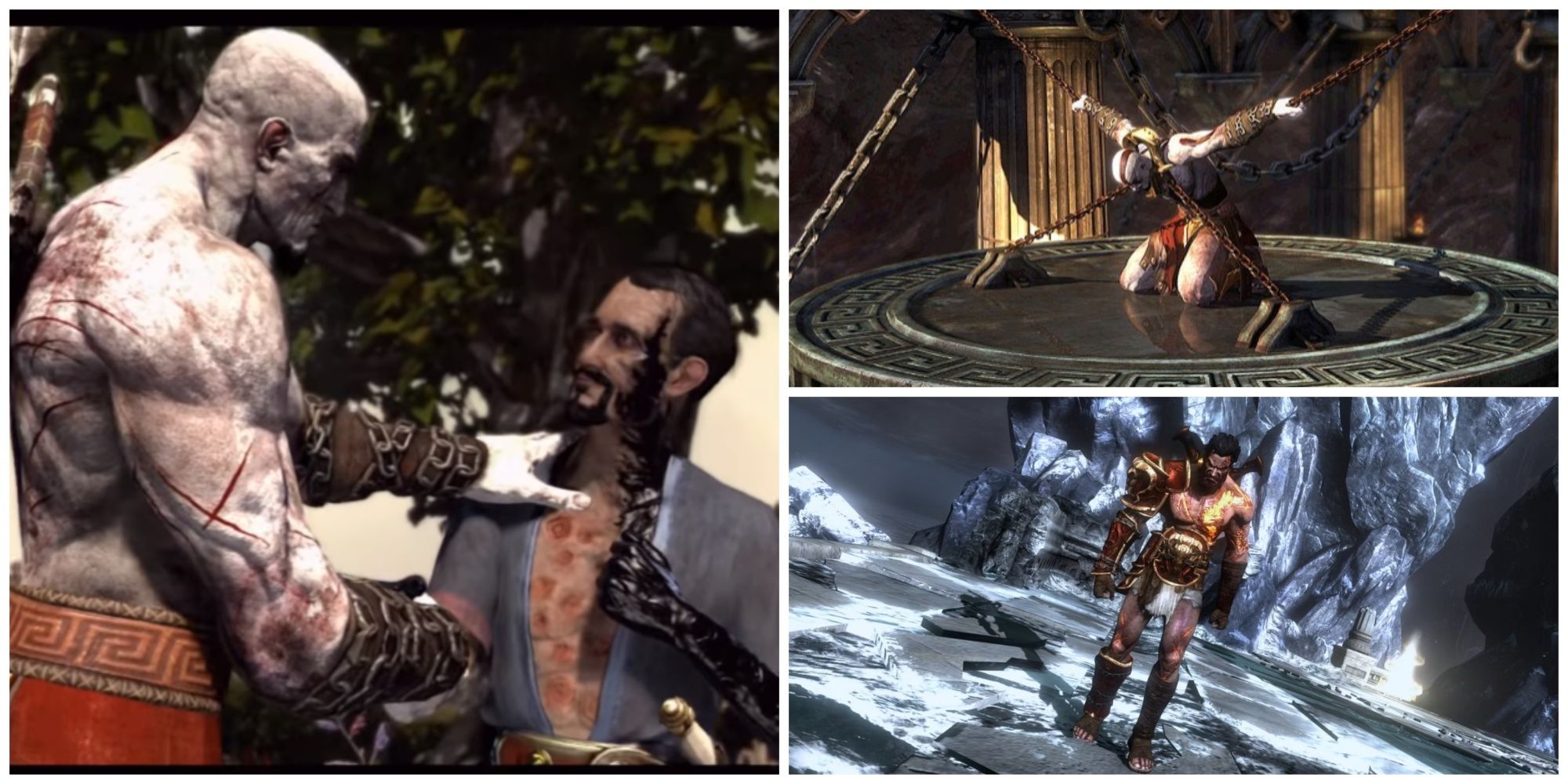
God of War: Underrated Characters
The God of War games have an amazing cast of characters, but some of them don’t quite get the credit they deserve. Here are the most underrated ones.
On the contrary, Kratos makes several smart moves in the God of War series. His life of rugged individualism and military service often leads to healthy values. In addition, he learns from past experiences and uses them to make more informed decisions. These factors save him from future misfortune and even benefit the world at large. In short, there’s more to this man than mindless destruction.
5 Trusting Hephaestus
Heeding a Lowly Blacksmith Saves Kratos From a Fiery Death
Not all gods on Mount Olympus are despicable despots, as Kratos encounters a kindred spirit in Hephaestus. The smith god previously suffered Zeus’s wrath and is now a prisoner in the Underworld. Kratos asks him about the Flame of Olympus, but Hephaestus warns that the mythical fire kills anyone who touches it.
The Spartan later interrogates Helios–the sun god–about the same subject. This foe urges him to “step into the Flame to receive its power.” Obviously, these are two conflicting tales with high stakes.
Kratos puts his faith in Hephaestus, and his reasoning makes total sense. After all, Helios calls his fellow deity a “freak” who’s fallen from grace, a position that Kratos is all too familiar with. Both Kratos and the blacksmith hate their Olympian tormentors, whereas the sun god, on the other hand, has ample reason to lie. The Spartan recognizes that treachery, which turns out to be the right move, as the Flame is indeed lethal. Had Kratos bet on the wrong horse, his journey would have come to a swift end.
4 Taking Items From Vanquished Foes
Kratos Never Lets a Good Tool Go to Waste
God of War 2
- Released
- March 13, 2007
- Publisher(s)
- Sony Computer Entertainment
Kratos is a seasoned Spartan warrior, and uses his available means to get the best results, taking advantage of every opportunity. That mentality doesn’t just apply in combat, but also informs his actions after the battle.
When Kratos kills a particularly powerful opponent, he takes that enemy’s unique tools. He could don Hercules’ Nemean Cestus as Olympian boxing gloves, or co-opt Icarus’s wings to glide across gaps. These instances demonstrate immense practicality on his part, as lesser bruisers would cast these spoils aside along with their owners, but that’s painfully shortsighted.
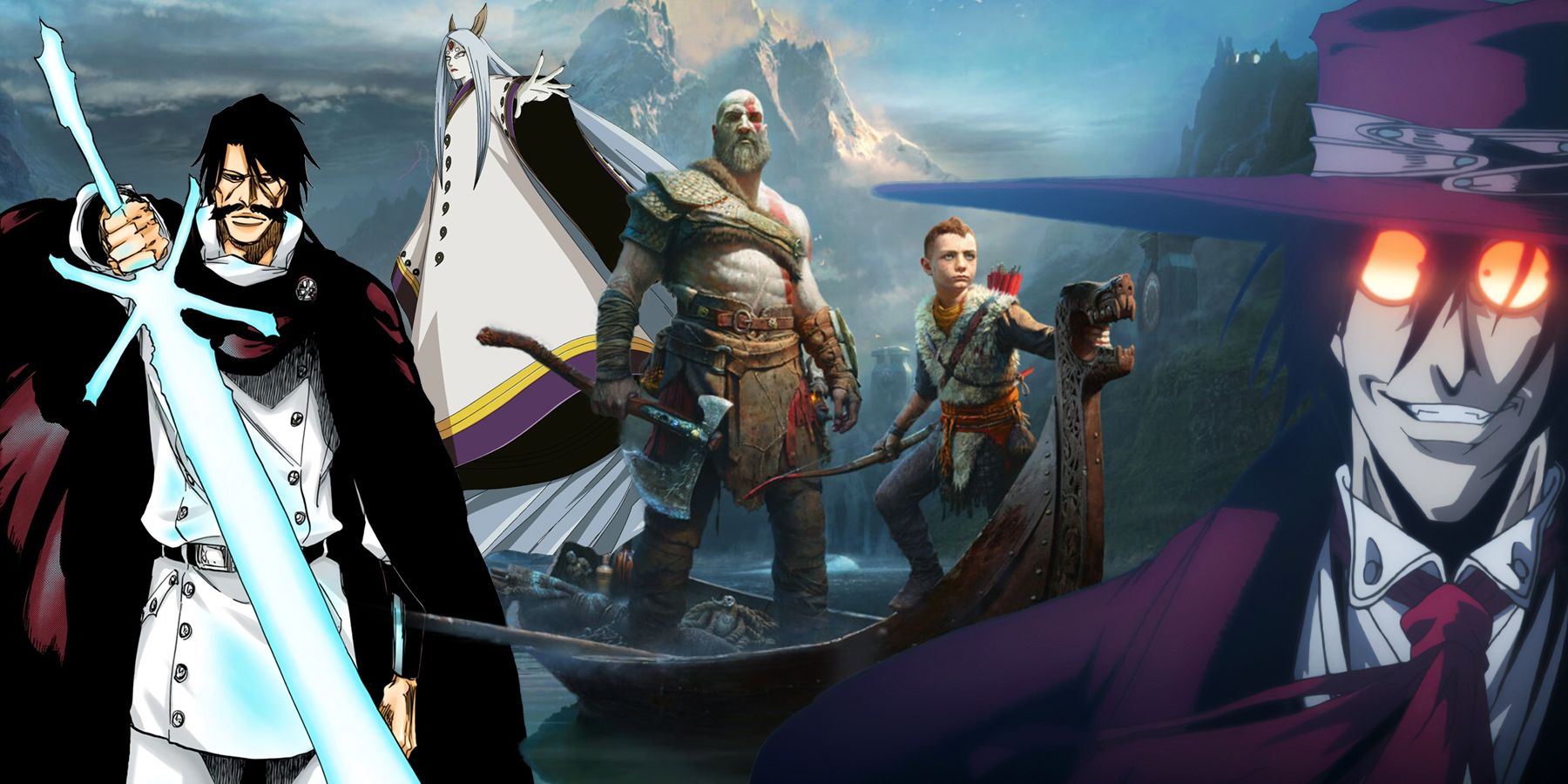
God Of War: Anime Characters Even Kratos Can’t Beat
God of War’s Kratos is a borderline unstoppable warrior, but the PlayStation icon does not stand a chance against these anime characters.
A good warrior knows a useful item when he sees it. As such, these treasures aid Kratos numerous times in the long run. Throughout the series, they help him navigate the world and conquer tougher foes. It may not be respectful to the dead, but it is forward-thinking.
3 Mentoring Atreus
Instilling Patience and Humility in His Son
In the Norse realm, Kratos eventually remarries and has a son named Atreus. He struggles in many areas as a parent, as he is not only afraid of human connection, but he has no clue how to be a good father. However, the one lesson that he drills into the kid is self-control. Atreus must regulate his emotions and think before he acts. This turns out to be a perfect moral for the boy.
Looking before leaping is a wise policy in general, but it’s especially relevant when Artreus’ godly powers and Spartan rage begin manifesting. He overcomes his dangerous pride by remembering his lessons, which takes immense mental and emotional discipline. Instilling those instincts at a young age demonstrates remarkable foresight from Kratos. Of course, hindsight also plays a part.
The lessons are just as healthy for Kratos. As a young warrior, he is impulsive, inconsiderate, and utterly fixated on his own agenda, paying no mind to how it affects others. The result is untold misery for innocent bystanders. Rejecting that mindset shows enormous growth and indicates that Kratos is genuinely trying to adopt better values. That’s an important step in the quest toward personal improvement.
2 Abandoning Ares
Serving the God of War turns Kratos Into the Very Monster He Despises
God of War
- Released
- March 22, 2005
- Publisher(s)
- Sony Computer Entertainment
Serving the God of War kicks off the whole franchise, as Kratos calls out to Ares in a time of desperate need. When his Spartan army falls to the barbarian hordes, he begs him to destroy his enemies in exchange for a life of service. That duty turns him into a ruthless killing machine, as slaughtering targets and burning villages become the norm. Kratos’ life seems devoid of all humanity until, in a blind blood rage, he kills his own wife and daughter, an act that Ares deliberately orchestrates to lead his slave down a dark path. Thankfully, it has the opposite effect.

Video Games Kratos Would Play
If the God of War ever turned to video games to relax or blow off steam, what titles might appeal to him?
The Spartan breaks away from the God of War. Ares encouraged Kratos’s worst tendencies, all for his own selfish gains and, if the warrior had remained enthralled, he would have continued dealing countless deaths for one diety’s vanity. Granted, he shouldn’t have made the deal with him to begin with, but better late than never. Abandoning his master forces him to seek a better path and a worthier cause. That search eventually sends him on the long road to redemption. At the very least, he fights for causes he actually cares about.
1 Giving Hope To The People
Kratos Ravages the World For Revenge, Then Paves The Way For Recovery
Kratos’ private war against Olympus reduced the world to chaos and ruin, but he has the tool needed to rebuild. When he opened Pandora’s Box, he inadvertently absorbed all the hope and positive energy that Athena stored inside. She now wants it back so that she can remake the world according to her design, but Kratos has a better idea.
Instead, he stabs himself, releasing that power to the people, which is easily the most logical option. Athena is arguably the most manipulative and cold-blooded character in the series who engineers devastating conflicts and pits characters against each other to suit her own ends. Only a fool would trust her with absolute power, but Kratos is no fool.
The God of War witnessed too many instances of gods oppressing their subjects, even being guilty of that himself. The Spartan knows he doesn’t deserve to rule after all he’s done, so he gives this hopeful essence to humanity and lets them finally take their destiny into their own hands. It’s an admirable act of atonement and the ultimate middle finger to the petty gods.
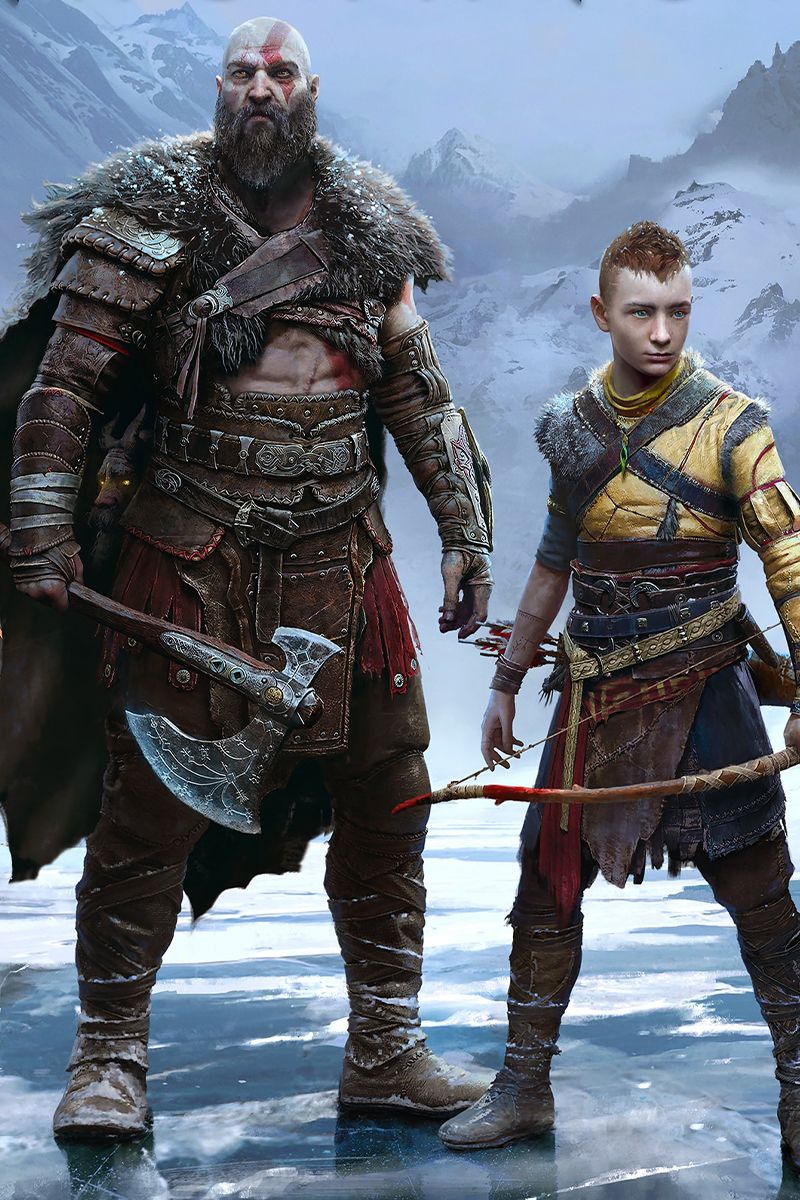
God of War: Ragnarok
- Released
- November 9, 2022


